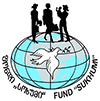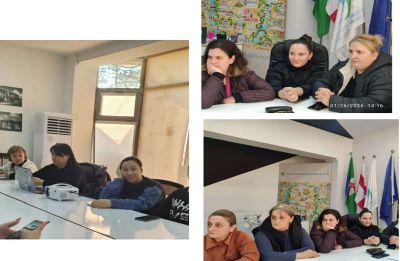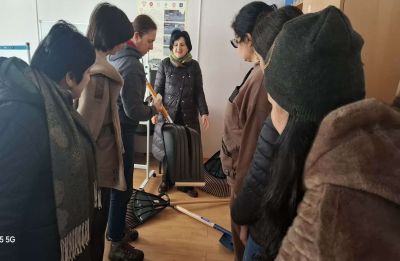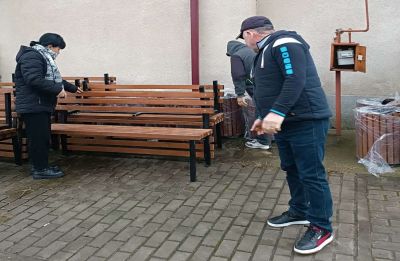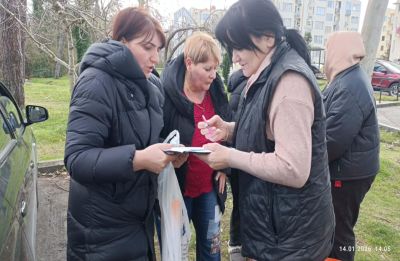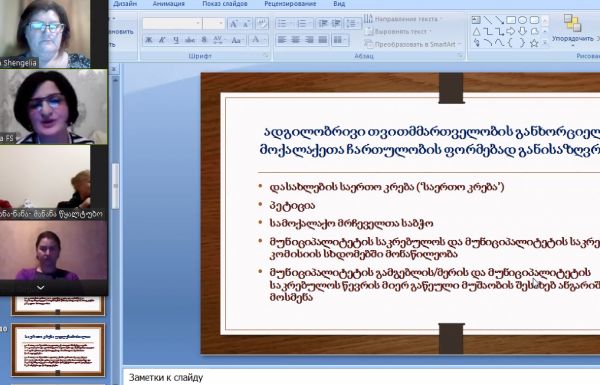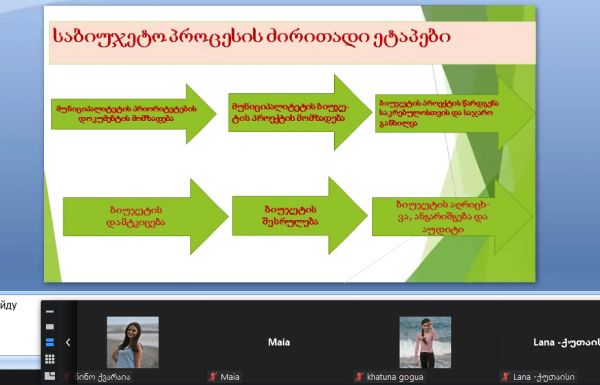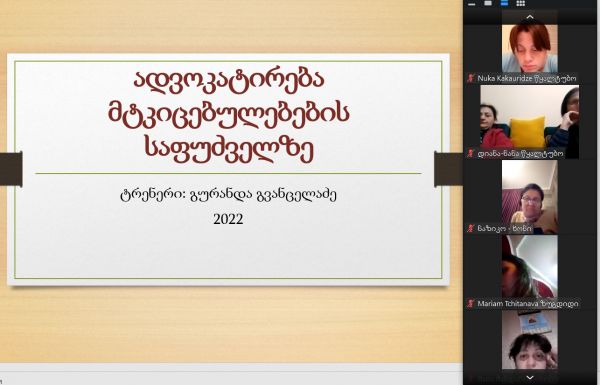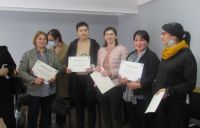Periodically we all need psychological relief.
With this reason, Fund "Sukhumi" organized a training with the teachers of Didinedzi school.
Art therapy, role games and tests. This is a small list presented by the psychologist of the Fund "Sukhumi" Manana Gotsiridze.
The women were very pleased and noted that such activities are necessary to feel energy and work with more enthusiasm.
The project is implemented with the support of the USAID
- No matter how much time passes, talking about the conflict will always be painful for an internally displaced person, but it is necessary to talk.
- Unfortunately, the borders of Georgia are also moved today, people are kidnapped from their territories.
- It's terrible when you look at the cemeteries of your loved ones from afar.
- We do not want to return Abkhazia by war.
- Many people do not know about the format of Geneva negotiations.
- All social benefits have increased, and the benefits for IDPs are on the same indicator.
- How much time has passed, and the IDPs are still not provided with accommodation.
These are the words of the participants of the two-day training. It is clear what was discussed and what issues were emphasized...
The training was attended by project assistants and 50 members of IDP Women Initiative Groups from five municipalities (Kutaisi, Khoni, Tskaltubo, Zugdidi, Senaki).
The project is implemented with the support
of the UN Women organization
"Citizens' participation in the implementation of local self-governance" - training with members of Khoni Women Initiative Group.
The training was held on the background of active discussion.
Legal Acts, principles of self-government financing according to the European Charter, self-governmental unit and its powers.
Lawyer Tamuna Pachulia talked about this and many other issues.
The project is implemented with the support of the USAID
Members of IDP Women Initiative Groups of Kutaisi, Khoni, Tskaltubo, Senaki and Zugdidi hosted the fifth online training on the topic “Self-governance and Forms of Civic Engagement”.
The participants got acquainted with the structure of local self-government, authority, responsibility, forms of civic engagement”. They had the opportunity, to work in groups on the following issues: what is the obstacle for civic engagement at the local level; how to increase the motivation of citizens so that they are more involved in the formation of local politics. During the discussion, the participants shared their own experiences with each other. According to them, the topics of training were important:
“I got acquainted with the forms of civic engagement. A lot of people should have such information."
“I will definitely use this knowledge in practice. I felt responsible to get involved in the processes that take place in the municipality.”
Проект осуществляется при поддержке
Женской организации ООН
"Stereotypes and Tolerance" - training on these issues was conducted with the youth group of the village Didinedzi.
These are the topics that we often face in everyday life, however the true meaning of the terms and the history of their origin is not known for everyone, this topic was discussed by the trainers of the Fund "Sukhumi" Lali Shengelia and Anzhela Chikhladze.
The involvement of children was very high, they were actively involved in the discussion and expressed their positions.
The project is implemented with the support of the USAID
Members of the IDP Women Initiative Group from Khoni, Tskaltubo, Kutaisi, Senaki and Zugdidi met online on April 28-29. A two-day training on "Local Budget, Civic Budgeting" was conducted for them.
Discussion of the training topic was continued in an interactive mode. Group work and discussions provided participants with the opportunity to share experiences with each other. Feedback showed that the participants will practically use the information received and will be actively involved in the ongoing budget processes of the municipality.
This training finished the one-month training cycle (4 trainings), which trained the members of the Women Initiative Group with appropriate skills. They will actively work with the target municipalities to implement the UN Security Council Resolution 1325 action plan at the local level.
The project is implemented with the support
of the UN Women organization
Members of IDP Women Initiative Groups from five target municipalities (Kutaisi, Tskaltubo, Senaki, Khoni, Zugdidi) attended the online training. The work was devoted to the topic "Evidence-Based Advocacy".
The aim of the training is to improve the skills of women's groups for successful advocacy. Participants considered factors that hinder advocacy at the local level; identified target groups and stakeholders; developed a working document of a plan for advocacy of the needs existing in local governments.
Participation in the training was useful for the members of the Initiative Groups, because they will be included in the process of advocacy within the framework of the project.
The project is implemented with the support
of the UN Women organization
"Civic Engagement and Women Participation" - a training on this topic was held with the members of the Women Initiative Group in Senaki.
The training was conducted against the background of active interaction from the side of the participants. They discussed the reasons of low civic activism. Heard information about the resources for civic engagement at the local level: how petitions are created, what is the purpose of settlement meetings.
According to the participants, the training was informative and productive, based on the information received, motivation and women's involvement will increase.
The project is implemented with the support of the USAID
50 participants attended the two-day online training on "Building Peace and Trust". They remembered the past, discussed the mechanisms for peace negotiations and building trust.
Members of the IDP Women Initiative Groups of Kutaisi, Tskaltubo, Senaki, Khoni and Zugdidi demonstrated conflict resolution and trust building skills during interactive and group work.
The participants of the training noted:
“For a society that has gone through a war, building peace is a difficult and painful process, but it is possible and necessary.”
“We - women should not be victims of war or passive objects of abuse, but should become important actors in peacebuilding.”
"Similar projects help to prepare society for conflict resolution - with information, with necessary skills, especially with effective communication."
The project is implemented with the support
of the UN Women organization
